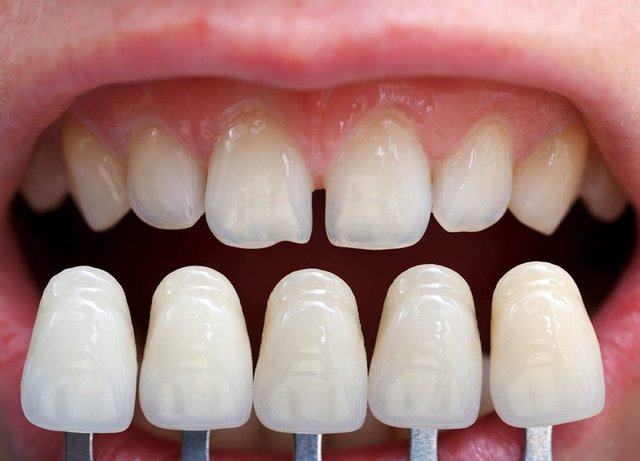
A cheerful smile may have a major influence on one's looks and self-esteem. Dental veneers have evolved as a popular cosmetic dentistry treatment for improving smiles and correcting a variety of dental flaws. Dental veneers are a diverse and efficient treatment option for discolored teeth, cracked enamel, and uneven spacing. In this article, we will explore everything you should know about dental veneers, from their types and benefits to the application process and aftercare.
What are dental veneers?
Dental veneers are thin, customized shells composed of porcelain or composite resin. They are glued to the front surface of the teeth, enhancing their appearance and creating a more natural-looking grin. Veneers are an effective treatment option for a variety of dental problems, including tooth discoloration, chipping, cracks, misalignment, and gaps between teeth.
Types of dental veneers:
Porcelain veneers: Because of their endurance and lifelike look, porcelain veneers are the most popular and widely used choice. They are created to be the same shape, color, and size as your real teeth. Porcelain veneers are stain-resistant and reflect light in the same way that real tooth enamel does, giving in a stunning, flawless smile.
Composite veneers: Composite veneers are a porcelain veneer alternative. They are composed of a tooth-colored resin material that the dentist immediately applies and shapes. While composite veneers are less expensive, they are less durable than porcelain veneers and may discolor more easily over time.
The application process:
Getting dental veneers typically involves several steps:
Consultation and treatment planning
Your dentist will assess your dental health and discuss your objectives and expectations during your initial appointment. They will determine whether you are a good candidate for veneers and assist you in selecting the best type for you.
Tooth preparation
In most cases, the front surface of the teeth receiving veneers has a tiny bit of enamel softly removed. This is done to provide a place for the veneers and ensure a smooth fit.
Impressions and customization
After preparing your teeth, your dentist will take impressions of them, which will be sent to a dental laboratory. Your veneers will be specially designed by skilled technicians to fit your preferred shape, size, and color, as well as the natural features of your smile.
Temporary veneers
While your permanent veneers are being produced, your dentist may apply temporary veneers to protect your teeth and maintain the beauty of your smile.
Bonding
Your dentist will check the fit and look of your personalized veneers before securely gluing them to your teeth using special dental cement. For maximum comfort and aesthetics, the veneers will be thoroughly fitted and polished.
Benefits of dental veneers
Aesthetics: Dental veneers can improve the shape, size, color, and alignment of your teeth, resulting in a more appealing look.
Durability: With the right maintenance, porcelain veneers can last a decade or longer. Composite veneers are less lasting, yet they can still beautify your home for several years.
Stain resistance: Porcelain veneers are very stain resistant, helping you to maintain a vivid smile even if you drink coffee, tea, or red wine.
Minimum tooth modification: When compared to other dental treatments, veneer application requires minimal tooth alteration, allowing you to keep more of your original tooth structure.
Aftercare and maintenance:
Maintaining proper oral hygiene practices is critical to extending the life and look of your dental veneers. Brushing your teeth twice a day, flossing every day, and seeing your dentist for check-ups and professional cleanings on a regular basis is extremely important. Consider the following guidelines for maintaining your dental veneers:
Avoid using too much force or pressure: While veneers are resilient, they can chip or shatter if used too aggressively. Biting down on hard things like ice, pencils, or fingernails, as well as using your teeth as tools to open goods, should be avoided.
Maintain proper oral hygiene: Use a soft-bristled toothbrush and non-abrasive toothpaste to clean your teeth. Abrasive toothpaste and whitening treatments should be avoided since they might ruin the veneer surface. Floss at least once a day to eliminate dental plaque and debris from between your teeth.
Use caution with staining agents: Although porcelain veneers are very stain-resistant, it is nevertheless crucial to limit your exposure to staining agents. Limit your intake of liquids such as coffee, tea, and red wine, or rinse your mouth with water afterward. If you smoke, you should consider quitting to extend the life and look of your veneers.